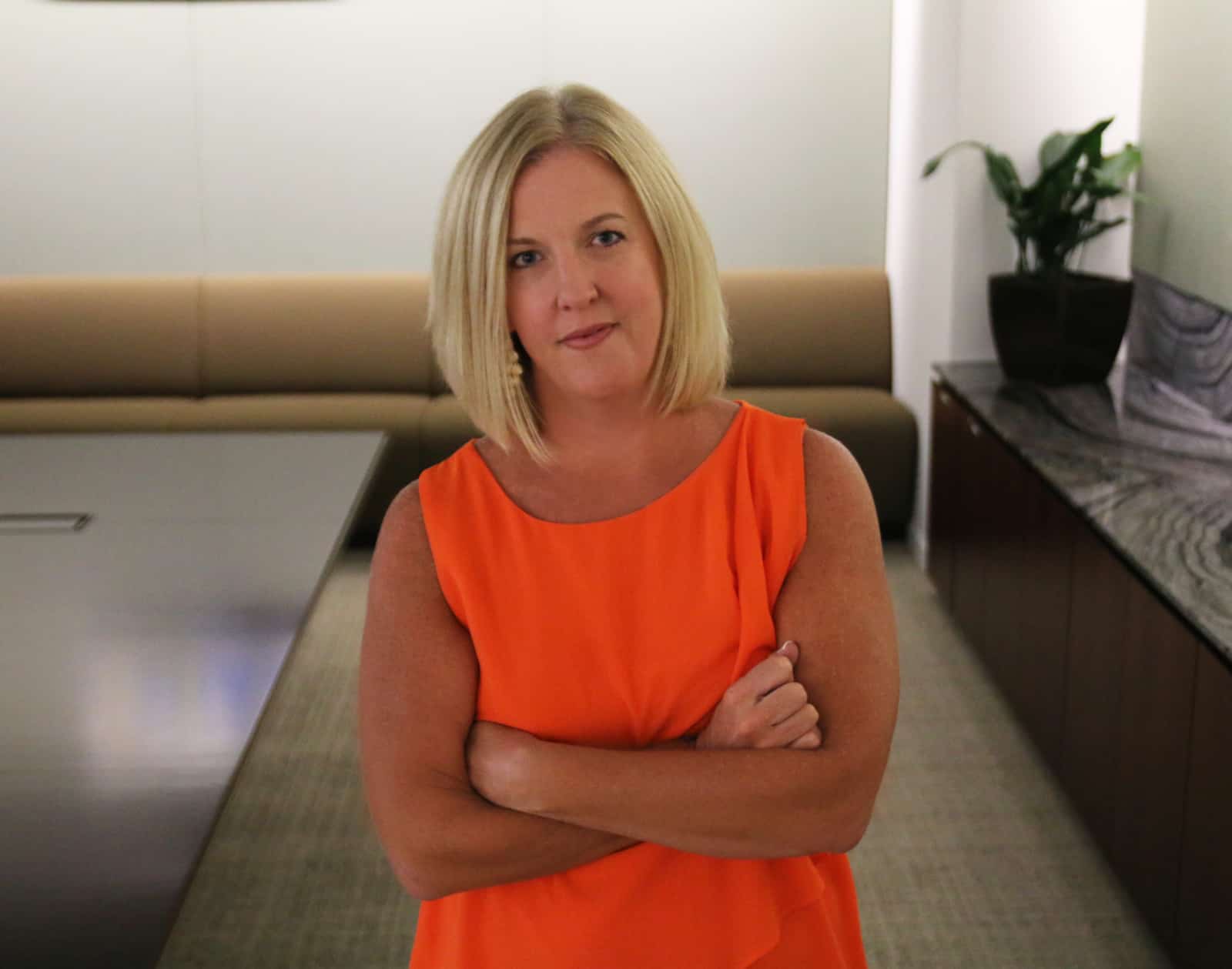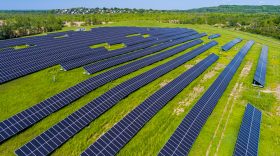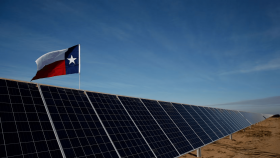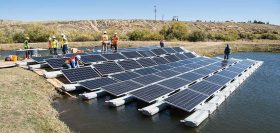In a time when the President is talking about bringing back coal, who is fighting for policies that assure a fair market for solar?
For years, advocates for the solar industry have battled to open the utility market for individual’s who want to make their own electricity, as well as start-up businesses who want to make and sell power in a free market. Environmental groups concerned with the negative effects of burning fossil fuels have joined the fight, and by raising awareness and of both the economic and environmental benefits of solar, this coalition has succeeded in helping to make solar the fastest growing sector in the energy economy.
Which advocacy groups are most effective in fighting on behalf of solar? Here are a few groups you should be following.
Solar Energy Industry Association (SEIA)
Founded in 1974, SEIA is the single largest and most effective non-profit organization working solely on behalf of the solar industry. SEIA has been at the forefront of national and state policy efforts during the solar industry’s infancy, and helped to bring it to maturity.
Led through twelve turbulent years by the very effective and sometimes controversial Rhone Resch, SEIA has a new CEO as of 2016, Abigail Ross Hopper. Hopper, who was the Director of the Department of Interior’s Bureau of Ocean Energy Management before joining SEIA, has proven to be a strong spokesperson for the Solar industry and has done an excellent job of filling Resch’s shoes. In addition, she has one of the most informative twitter feeds in the solar world.
SEIA/GTM Research release Q3 2017 Solar Market Insight showing 2.4 GW of new #solar capacity installed! Release: https://t.co/HP6kEo72Ph
— Abby Hopper (@HopperAbby) September 11, 2017
Most recently, SEIA and Ms. Hopper have been very effective at laying out the case against the tariffs proposed in the Suniva case. Hopper told PV Magazine:
SEIA is going to fight fiercely on behalf of the solar industry every step of the way. We’re going to continue to engage with the ITC at a high level so our feelings as an industry are known. We feel confident that the Trump administration understands the importance of this issue to American jobs and innovation.
For more information, visit: seia.org
Solar Foundation
The Solar Foundation is the non-lobbying sister organization of the Solar Energy Industry Association. Whereas SEIA is a 501(c)6 is a non-profit trade organization that is allowed to do direct lobbying, The Solar Foundation is a 501(c)3 charitable non-profit dedicated to performing the research needed to support SEIA’s efforts.
The Solar Foundation may not get as many headlines as its big sister the SEIA, but they have been putting out some excellent reports on the economic impacts of solar. From their website:
The annual National Solar Jobs Census is the first and most authoritative national benchmark for solar jobs research. It has shown time and again that solar is a leading source of job growth in the 21st century. As of 2016, the solar industry employs 260,077 people in the United States, marking a 25 percent growth from 2015.
For more information, visit thesolarfoundation.org
American Solar Energy Society
The American Solar Energy Society (ASES) is one of the grand-daddies of the solar movement. ASES was founded in 1954 at the very dawn of photovoltaic research at Bell Labs. They have local chapters in all 50 states and Puerto Rico, as well as student chapters at eight colleges and universities. Their board members hail from all across the country and from both businesses and NGOs.
Their accomplishments have included:
-
- More than six decades of advocacy, research and scientific papers
-
- 45 National Solar Conferences and counting
-
- 30 years of Solar Today magazine issues
-
- 17 volumes of Advances in Solar Energy
-
- Countless policy reports commissioned by ASES
-
- More than 20 years of the National Solar Tour
- The prevalence of solar and renewable energy businesses, events, and media that has erupted over the past decade
Their website is ases.org
The Smart Energy Power Alliance (SEPA)
Formerly known as The Solar Electric Power Association, SEPA has expanded their focus to include not only solar, but demand response, energy storage, and other “enabling technologies.”
Based in Washington DC with a staff of 30 highly-qualified professionals, SEPA produces research and position papers focused on reducing the roadblocks to implementing utility-scale solar. In 2015, CEO Julia Hamm told the Huffington Post:
“Today we work with 50 different sets of energy policies in 50 different states. We operate with the decades-old legacy of electricity market rules and structures designed for the central station power world of the 20th Century. So it is not surprising that the rapid rise of an easily scalable energy source like solar – along with the advent of affordable energy storage, expanded microgrids and a growing electric vehicle fleet – is causing disruption that will only continue to grow….Our initiative is soliciting the best and brightest ideas from solar industry companies, electric utilities, related associations or think-tanks, universities, consultants…anyone with the best and brightest ideas for a sustainable path for distributed energy resources and the infrastructure and needs of managing the electric grid.”
Environmental Law and Policy Center
For more than 20 years, Executive Director Howard Learner has led this unique regional advocacy group. Unlike so many smaller groups focused on policies in their home state, this Chicago-based outfit takes a regional approach, providing legal and strategic support to smaller groups all around the Midwest. According to their website:
We develop and lead successful strategic advocacy campaigns to improve environmental quality and protect our natural resources. We are public interest environmental entrepreneurs who engage in creative business dealmaking with diverse interests to put into practice our belief that environmental progress and economic development can be achieved together.
In the area of solar, ELPC is focused on:
-
- Renewable Energy Standards (RES) that include “carve outs” requiring a certain percentage of a state’s energy to come from in-state solar power
-
- Financing mechanisms like net metering that make solar projects more affordable
-
- Municipal electricity contracts that maximize local solar opportunities
- Net metering and interconnection policies that help ensure customers with on-site solar installations are compensated fairly by utilities when their meter runs backward
For more info, visit their website elpc.org
Interfaith Power and Light (IP&L)
Unlike many of the other organizations in this list, Interfaith Power and Light is neither a business association nor a think-tank. IP&L is a faith-based organization which brings together people of all religions around the idea of stewardship. From their website:
For 16 years, IPL has been helping congregations address global warming by being better stewards of energy. The campaign has a track record of tangible results: shrinking carbon footprints and educating hundreds of thousands of people in the pews about the important role of people of faith in addressing this most challenging issue.
Started in 1998 as coalition of Episcopal churches aggregated to purchase renewable energy, the Episcopal effort broadened its focus in 2000 and brought in other faith partners Now, over 20,000 congregations in 40 states are participating in IP&L’s programs. These programs have included assisting with energy efficiency upgrades at churches and installation of solar panels on places of worship.
Visit interfaithpowerandlight.org for more info.
Energy Storage Association (ESA)
ESA is an international organization dedicated specifically to energy storage, so the American solar industry is not its direct focus. However, we all know that storage is key to next-gen solar technologies, so ESA is a relatively new group that we will want to be watching in the years to come. Its partner organizations include:
-
- Australian Energy Storage Council (ESC)
-
- California Energy Storage Alliance
-
- China Energy Storage Alliance
-
- European Association for Storage of Energy
-
- Energy Storage Canada
-
- India Energy Storage Alliance
-
- Korea Battery Industry Association (KBIA)
-
- NC Sustainable Energy Association (NCSEA)
-
- New York Battery & Energy Storage Consortium (NY-BEST)
-
- Pacific Northwest Economic Region (PNWER)
-
- Solar Energy Industries Association (SEIA)
- SunSpec Alliance
For more info, visit:energystorage.org
Business Council for Sustainable Energy (BCSE)
The Business Council for Sustainable Energy (BCSE) is an interesting coalition group made up of some unlikely bedfellows. Founded in 192, BCSE is a coalition of players from the worlds of the energy efficiency, natural gas, and renewable energy. It also includes independent electric power producers, investor-owned utilities, public power, commercial end-users and project developers and service providers for environmental markets.
Their annual “Sustainable Energy in America Factbook” is a unique publication that cast a wide net bringing in a variety of low carbon generation technologies. It may not appeal to hardcore environmentalists, but it gives a very realistic picture of where the US is heading in the journey toward new, cleaner technology.
BCSE staff and members engage in routine meetings with congressional staff as well as the Executive Branch in order to advocate the Council’s energy and economic policy priorities.The Council provides written responses to congressional requests for information on specific issues, public statements for a hearing record, and witnesses for congressional hearings.
For more info, visit: bcse.org
Clean Energy Business Network (CEBN)
Founded in 2009 by The Pew Charitable Trusts, The Clean Energy Business Network has more than 3,000 members across all 50 U.S. states. the CEBN has more recently become an initiative of the Business Council for Sustainable Energy, where it “serves as a grassroots arm to inform and engage clean energy business leaders in policy issues affecting their industry.” Unlike BCSE which is made up of larger corporations and associations, CEBN is composed of individual members, many of whom are executives of small- to medium-sized businesses working in the energy sector. Small businesses that joining CEBN receive:
- Updates on policies affecting your business.
- Alerts letting you know how your voice can make a difference.
- Opportunities to network with other clean energy professionals.
- Resources to help you grow your business and identify new market opportunities.
- Notices about clean energy events, funding opportunities, market research, and news.
Pew itself is an independent non-profit, non-governmental organization (NGO), founded in 1948, and its stated mission is to serve the public interest by “improving public policy, informing the public, and stimulating civic life.” Pew has over US $5 billion in assets, .
For more information: bcse.org/cebn/
Citizens For Responsible Energy Solutions (CRES)
CRES is an extremely interesting organization with an unusual mission. From the Website:
Citizens for Responsible Energy Solutions was founded to engage Republican policymakers and the public about commonsense, conservative solutions to address our nation’s need for abundant, reliable energy while preserving our environment.
For those who think that all Republicans hate renewables, here is the exception to the rule. This organization illustrates that business knows no party lines. James Dozier, president of Citizens for Responsible Energy Solutions, said in a statement to the Huffington Post that his group has received funding from 800 donors and backing from more than 5,000 “conservative activists.”
“CRES was founded with a commitment to conservative, free-market solutions to America’s energy challenges and we will continue to advance that mission,” Dozier said.
The team at CRES is loaded with experienced Republican political operatives and moves a lot of money around political campaigns. Agree with them or not, how they operate is a lesson in what happens when big-money DC politics meets the renewable energy industry.
For more info, visit: citizensfor.com/
Vote Solar
Vote Solar is a non-profit organization working to foster economic opportunity, promote energy security and fight climate change by making solar a mainstream energy resource. They work at the state level all across the country to support the policies and programs needed to repower our grid with sunshine.
For more info, visit: votesolar.org






